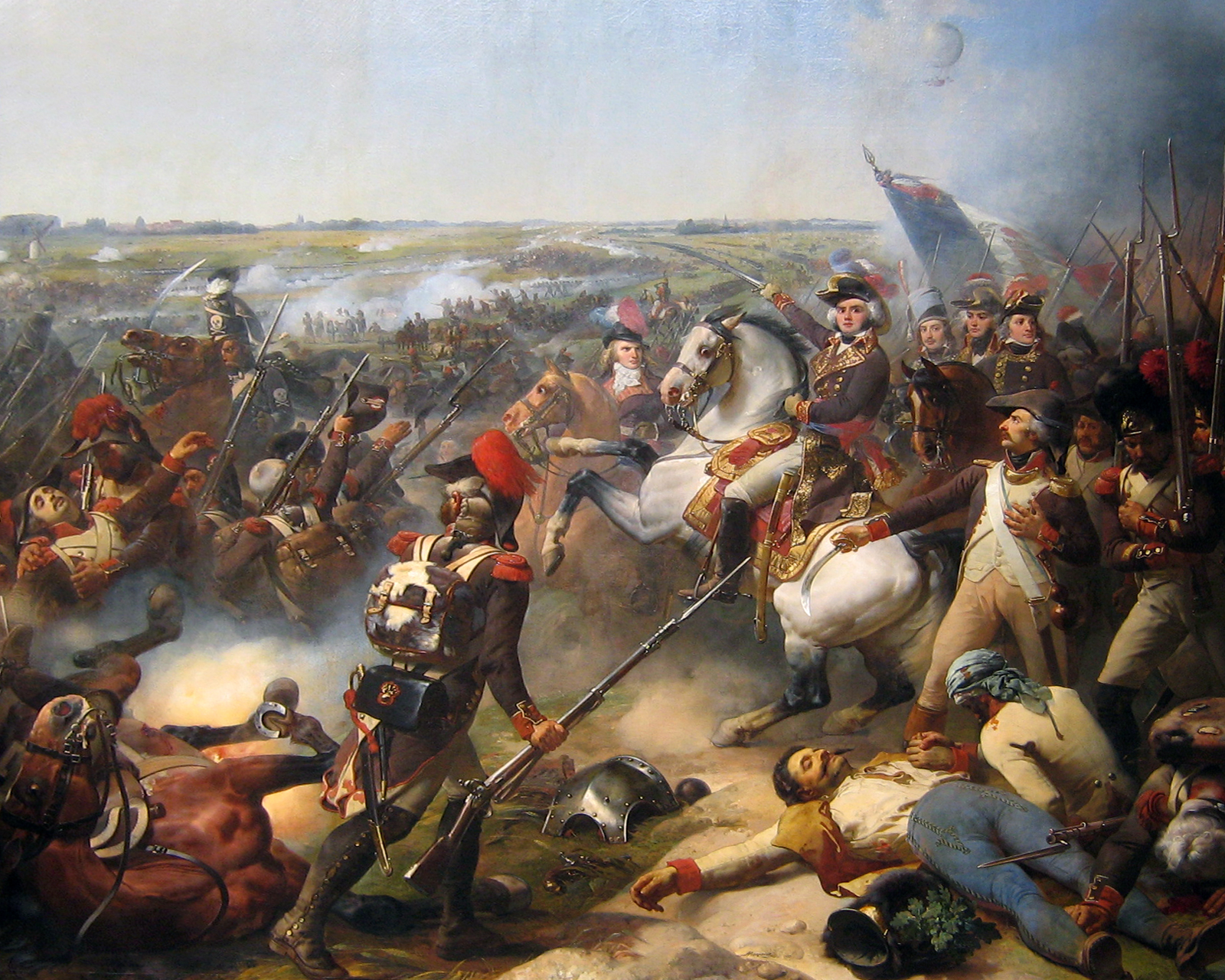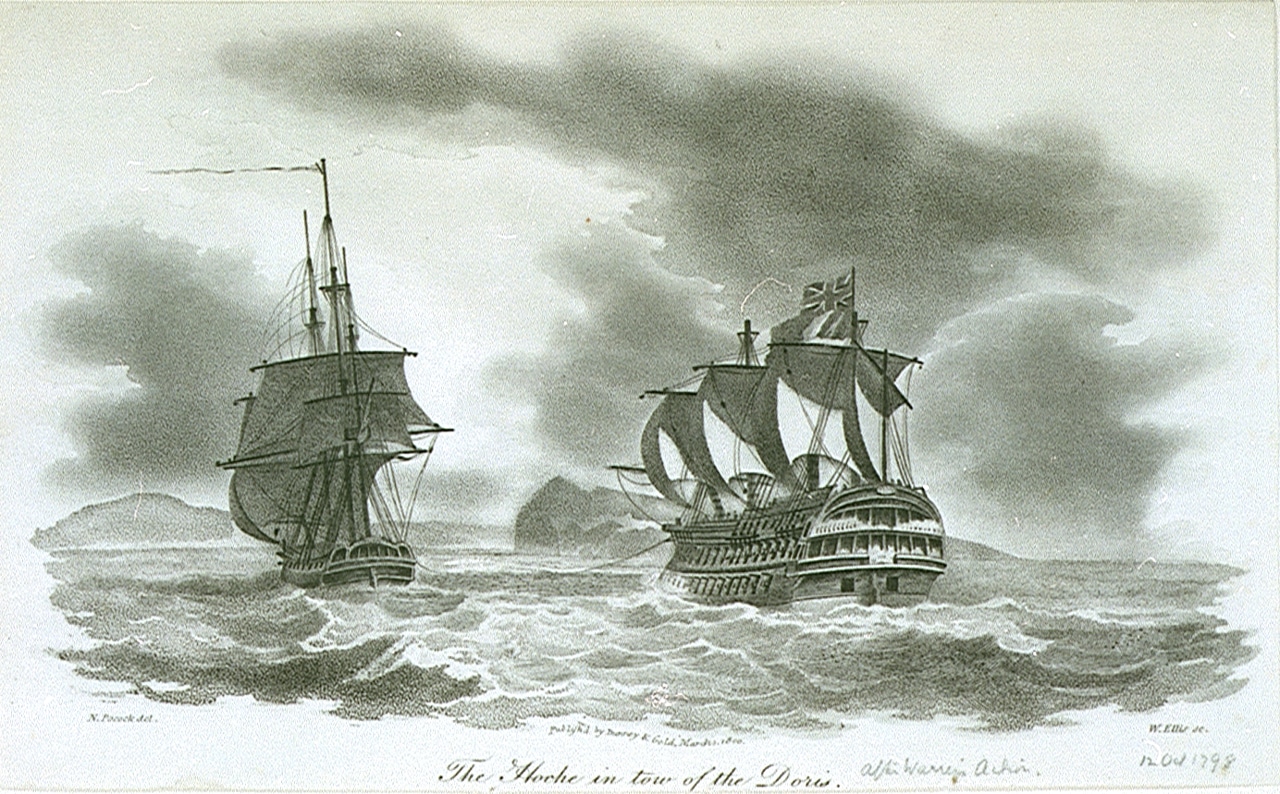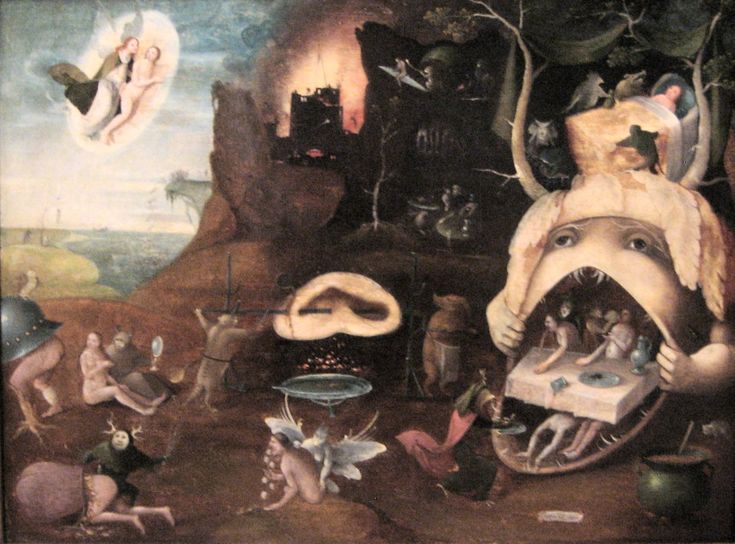The man who would eat anything
Our story begins in Lyon, France 1772, where Tarrare is born to a poor farming family. Little is known about his early life, except for that by his teens Tarrare had an appetite that allowed him to eat an entire quatre of a cow carcass in a single day, while apparently being underweight. His belly would reportedly expand a lot when full and hang around his body like a thin flap when he was not. He had a huge, stretched out mouth and could hold 12 eggs at once. Lastly, he was apparently smelly beyond belief – even by peasant standards.
Soon his family could no longer afford to keep up with Tarrare’s gluttonous appetite, so he was kicked out.
However, he would soon learn to use his extreme appetite to his advantage, as a street performer in Paris. People would hand him entire baskets of apples, eggs and even wine corks to gulp down.

Bataille de Fleurus 1794. Public domain, via Wikimedia Commons.
War of the First Coalition
In 1792 Tarrare enlisted with The French Revolutionary Army in The War of The First Coalition. Due to his unquenchable hunger, he received a ration four times the normal size. But this was apparently still not enough for Tarrare, and he ate any available food from gutters and rubbish heaps.
It is in The War of The First Coalition that we are also introduced to Charles Domery. Born in 1778, like Tarrare, he was thin but always hungry. At the age of 13, he had initially enlisted in the Prussian Army. But during the siege of Thionville, the Prussian Army suffered food shortages. Domery found this intolerable, so he entered the town to surrender. He was rewarded with a large melon, which he immediately ate, including the rind. Dormery then enlisted with the French Revolutionary Army and was granted double rations.
He was stationed around Paris. Apparently the double rations were not enough for Domery. So, he reportedly ate 174 cats in a single year, and ate 4 to 5 pounds (1.8 to 2.3 kg) of grass everyday, if no other food was available. A man of complex tastes, to be sure!

Trials of men with eternal hunger
Tarrare was apparently not as good as Domery at catching cats or eating grass. Despite his quadruple rations his condition deteriorated through hunger, and he was hospitalised. Here he became subject to a series of medical experiments. To his delight, these included eating a meal intended for 15 people in a single sitting, eating live cats, snakes, lizards, puppies, and swallowing eels whole without chewing. Delicious! Despite also eating the bones, Tarrare encountered no digestion issues.
However, his easy days at the hospital would soon come to an end. General Alexandre de Beauharnais decided to put Tarrare’s abilities to the test. Tarrare was to swallow documents, pass through enemy lines, and recover them from his stool once safely at his destination. But on his first mission, he was captured by Prussian forces, severely beaten, and subjected to a mock execution before being returned to French lines.
Back to Charles Domery. He had started service on board the French ship Hoche. Here he had tried to eat another sailor’s leg when it was shot off by cannon fire, but he was interrupted after a few bites when a crew member wrestled it from him and threw it into the sea.
To his luck, in October 1798 he was captured by the British. He was put in a prison camp near Liverpool where his ration quickly increased from two to ten times the original quantity + a total of at least 20 rats, which had strayed into his cell.

The Hoche in tow of the Doris 1798. Public domain, via Wikimedia.
Back to the hospital
Tarrare went back to the hospital where they tried to cure him. Yet, all procedures and diets failed. Tarrare would often sneak out of the hospital to scavenge for food in rubbish heaps, and would occasionally attempt to drink the blood of bloodletting patients in the hospital. Even more horrific, he would sometimes try to eat the corpses in the hospital’s morgue. He was eventually thrown out of the hospital after being suspected of having eaten a one-year-old toddler, who had mysteriously disappeared without trace… You read that right.
Anyway, back to Charles Domery. He quickly drew the attention of medical staff and, to his delight, experiments were conducted on him. One of them went like this:
At 4 am he was woken up and fed 4 lbs (1.8 kg) of raw cow’s udder. At 9:30 am, he was given 5 lbs (2.3 kg) of raw beef, twelve large tallow candles, and a bottle of porter. At 1:00 pm, he was given the same amount of beef and candles again, but this time three large bottles of porter. He ate all this without hesitation nor vomiting, and he didn’t need to go to the toilet even once during the experiment.
When he returned to his quarters, he was recorded as being of “particularly good cheer”, danced, smoked his pipe and drank a further bottle of porter.

The Vision of Tondalys. Follower of Hieronymus Bosch c.1485. Public domain, via Wikimedia.
Tragic gluttons?
Tarrare would return to the hospital 4 years later in 1798, stating that he had swallowed a golden fork, which was the cause of his current ills. Though, doctors, soon recognised that he had advanced tuberculosis, and Tarrare would die just a month after arriving at the hospital.
As for Charles Domery, he fades out of the historical record after the experiments, save one remark from Charles Dickens, who in 1852 wrote of Domery that “Now, it is my opinion, that a man like this, dining in public on the stage of Drury Lane, would draw much better than a mere tragedian, who chews unsubstantial words instead of wholesome beef”
Both Charles Domery and Tarrare were deemed by doctors to not posses any signs of mental illness. It seems that they were both driven to horrific acts by blinding gluttony. Whatever illness befell the two men, it seems that it made them consume everything and anything they could until they themselves were consumed by the act of consumption itself.

